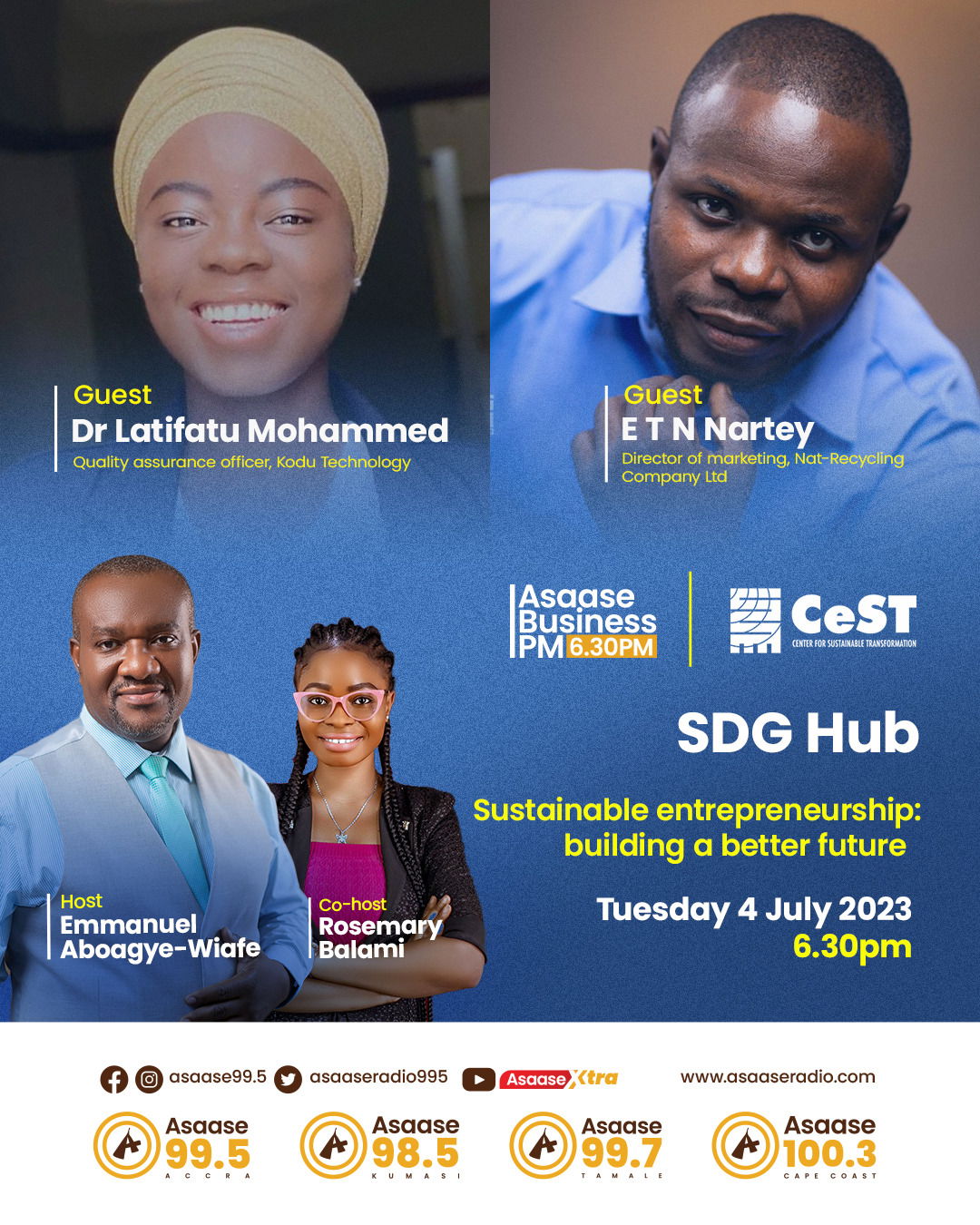
In 2012, Ghana had an estimated 37% of Ghanaians that consider entrepreneurship as a good career choice. If geared towards sustainable entrepreneurship this will be beneficial to the country and the ecosystem.
Sustainable entrepreneurship, also known as green entrepreneurship or eco-entrepreneurship, is the practice of creating and managing businesses that prioritize environmental and social sustainability while pursuing economic profitability. It involves integrating sustainable practices into the core strategies, operations, and values of a business.
Sustainable entrepreneurship is a must in today’s world as businesses in developing countries also balance economic growth with environmental and social responsibility. By being socially and environmentally responsible, sustainable entrepreneurship provides a business model that meets the needs of the present without compromising the ability of future generations to meet their needs.
Sustainable entrepreneurship is a must in today’s world as businesses in developing countries also balance economic growth with environmental and social responsibility. By being socially and environmentally responsible, sustainable entrepreneurship provides a business model that meets the needs of the present without compromising the ability of future generations to meet their needs, aligning with a number of the SDGs. In particular, SDG 12: Responsible Consumption and Production and SDG 8: Decent Work and Economic Growth.
In a discussion with Dr. Mohammed Latifatu, Quality Assurance Officer, Kodu Technology on the SDG Hub, she elaborated on the need for Ghanaians to link business to the Sustainable Development Goals (SDGs) to embrace sustainable entrepreneurship because of the numerous raw materials we have in the country.
“Linking our business model to the SDGs I think is more in line with SDG goal 12 which is sustainable consumption and production. With that, as I already mentioned, our raw materials are sourced here in Ghana, it’s sourced locally and it’s something that is always there, always available for us.”
She added, “Entrepreneurs have a responsibility to consider the future ramifications of social innovation and business strategy, and to practice business ethics that prioritize the long-term health of society at large.”
Green entrepreneurship is a new branch of entrepreneurship, which fuses environmentalism with entrepreneurial spirit, with the potential to move toward a recognized ecological society. Sustainable entrepreneurship plays a crucial role in building a green economy. By integrating sustainability into business practices, entrepreneurs can create environmentally friendly products and services that meet the needs of consumers today while also protecting the environment for the future. This not only helps to protect our planet but also stimulates economic growth and job creation at the same time. Sustainable entrepreneurship encourages innovation and creativity leading to new ideas and solutions for addressing societal and environmental challenges.
ETN Nartey, Director of marketing -Nat recycling company ltd during the discussion on the SDG Hub also stressed the importance of sustainable entrepreneurship.
“Circular economy itself, as I said earlier, is a strategy to have a consistent usage of raw materials. Not to use and dispose of. So, if it moves from one it can be a raw material for the next party and the next so it creates a lot of employment.”
He also explained that in order to make sustainable entrepreneurship an attractive venture, Ghanaians must learn to purchase made-in-Ghana goods.
“I think if we emphasize more on made-in-Ghana products, it will gain more acceptance. If that is not done, as much as we try a lot of things from overseas, It’s a lot of time flashy and looks more presentable than what we have here. So, we are doing our best with the available resources that we have. If we have to go external to source materials that will make it extraordinary, then it means it’s certainly going to raise prices. So, we need to develop a higher taste for it through the government making a high campaign on that.”
Written By: Faustina Yeboah, YRE